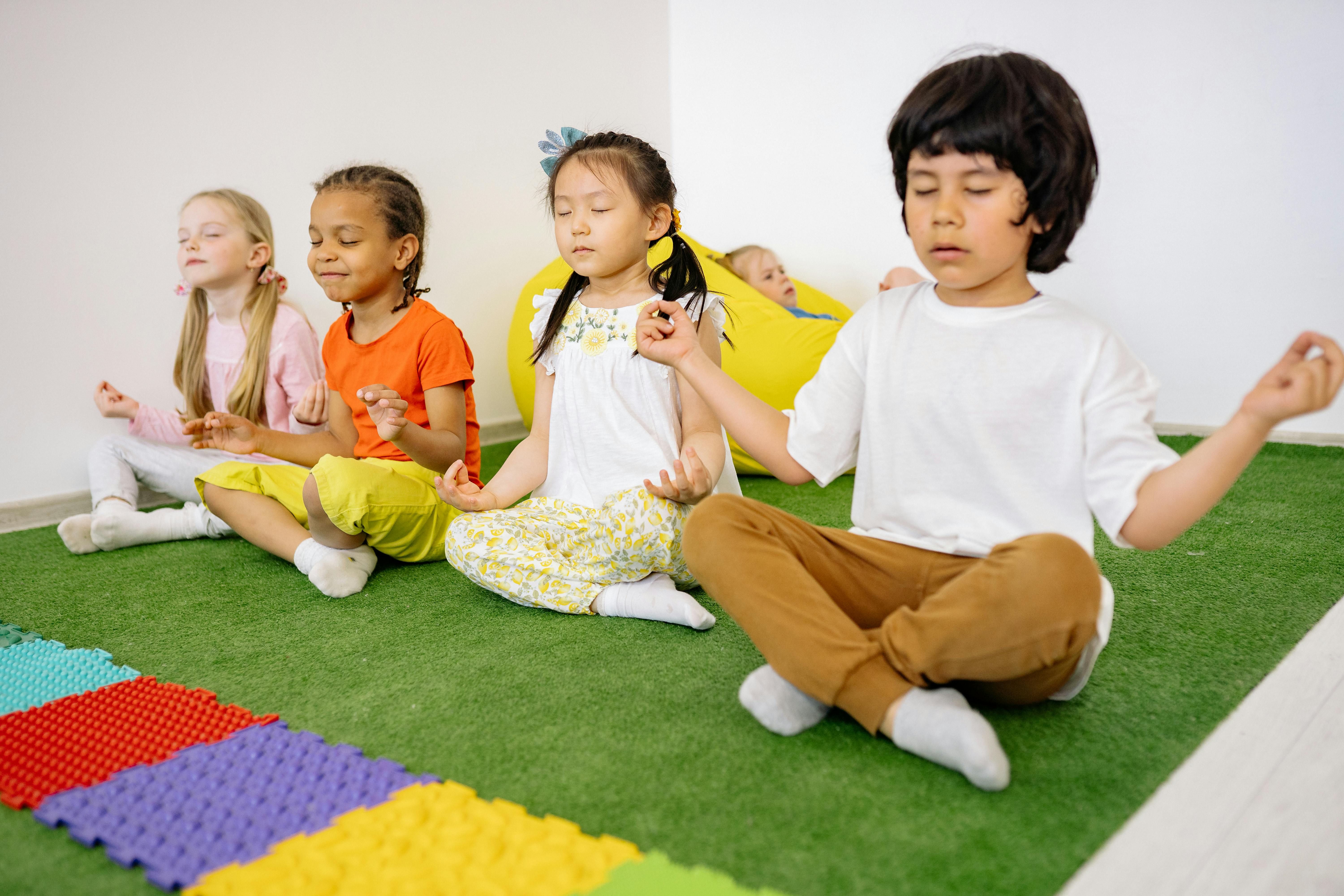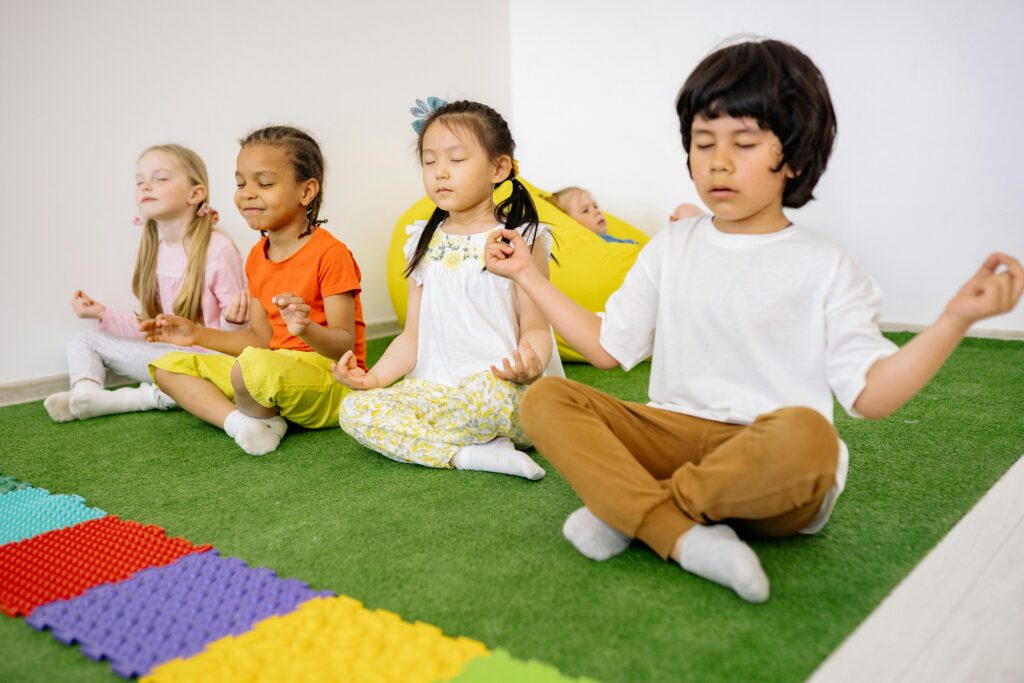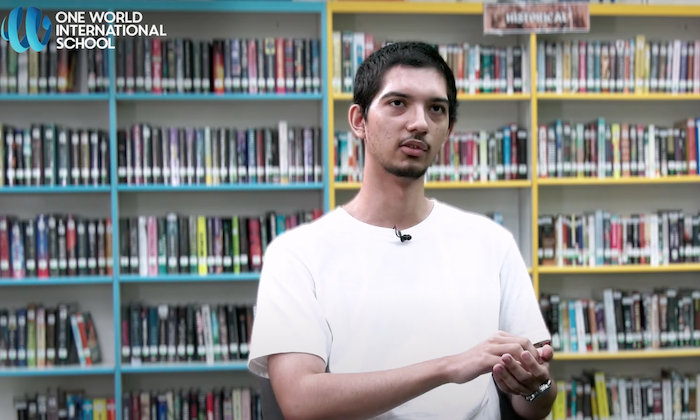Imagine a child who can confidently navigate their feelings, build strong relationships, and approach challenges with resilience. These qualities, nurtured through effective emotional regulation skills, significantly influence a child’s success in their personal lives and academics.
Given the profound impact of emotional intelligence and self-regulation on children, One World International School (OWIS) seeks to provide avenues to foster these essential skills in our students.
What is Emotional Regulation?
Emotional regulation refers to the ability to understand, manage, and express emotions healthily and appropriately. Here are its key components:
- Being aware of one’s feelings
- Understanding the reasons behind the feelings
- Developing effective strategies to respond
This process goes beyond controlling or suppressing emotions – while suppression involves ignoring feelings, emotional regulation focuses on acknowledging and processing emotions constructively.
Why is Emotional Regulation Important for Children?
Emotional regulation is a cornerstone of healthy development, playing a crucial role in children’s overall well-being and ability to navigate social interactions effectively.
Improved Mental Health
Learning to regulate emotions helps children cope with feelings of anxiety, frustration, and sadness. It also empowers them to seek support and develop a positive self-image when necessary.
This leads to greater emotional stability, improved mood regulation, and a reduced risk of developing mental health issues like anxiety and depression.
Stronger Relationships
Kids with good emotional regulation skills tend to have healthier and more fulfilling relationships with their peers, family members, and teachers. This is because they are better able to communicate their feelings, understand others’ perspectives, and resolve conflicts constructively.
In turn, these positive interactions foster stronger bonds, build trust, and contribute to a more supportive and enriching social environment for the child.
Enhanced Academic Performance
When children are able to manage emotions and distractions effectively, they improve their capacity to focus, concentrate, and engage with learning materials. As such, they may have better comprehension of concepts and improved performance in tasks and assessments.
Furthermore, emotional regulation supports problem-solving abilities, enabling children to approach academic challenges with a more structured and effective mindset.
Increased Resilience
Children with practical emotional regulation skills are likely to persevere through difficulties, bounce back from adversity, and adapt to new situations more easily.
These abilities build a growth mindset essential for navigating life’s inevitable ups and downs, ultimately leading to greater emotional well-being and success.
How to Foster Emotional Regulation Skills for Kids
As a parent, you play a vital role in helping your child develop emotional regulation skills. Consider the following strategies and techniques to help your child cultivate the skills to understand, manage, and express their emotions in healthy ways:
- Modelling: Children learn by observing the adults around them. You can model healthy emotional regulation by demonstrating how to manage your emotions constructively.
- Labelling emotions: Helping children identify and name their emotions gives them the vocabulary to express themselves and understand their feelings.
- Validating feelings: Acknowledging and validating children’s emotions, even if they seem insignificant, creates a safe space for them to express themselves openly.
- Teaching coping skills: Equipping children with coping mechanisms, such as deep breathing exercises or taking a break, provides them with tools to manage strong emotions.
- Setting boundaries: Establishing clear limits helps children understand acceptable ways to express their emotions and learn appropriate social behaviour.
You can also try several emotional regulation activities at home to further support your child’s emotional development.
Emotional Regulation Activities to Try With Your Child
Storytelling and Role-Playing
Discussing characters’ emotions in stories or creating role-playing scenarios can help children understand and regulate different feelings. Use picture books, create stories, or act out everyday situations with your child to facilitate this activity.
In the process, encourage your child to identify and label emotions, discuss characters’ actions and motivations, and consider alternative ways of responding to challenging situations.
Emotion Charades
This game focuses on identifying emotions and helps children develop empathy by understanding how others might feel. Take turns acting out different emotions using facial expressions and body language while the other person guesses the emotion.
To make it more engaging, you can also use emotion cards and encourage your child to pay attention to the physical cues associated with each emotion.
Deep Breathing Exercises
Mindfulness and relaxation techniques are effective for calming the mind and body, especially when trying to regulate difficult emotions like frustration or anger.
One simple activity you can try is ‘belly breathing’, which involves lying down, placing a hand on the belly, and focusing on the rise and fall of the abdomen while taking slow, deep breaths. Encourage your child to visualise the breath filling their belly like a balloon, promoting a sense of calm and relaxation.
Fostering Emotional Regulation Skills: A Foundation for Life

Emotional regulation goes beyond managing difficult feelings, forming a foundation for kids’ overall well-being and future success. By equipping your child with the skills to understand, manage, and express their emotions effectively, you empower them to thrive in all aspects of life.
Beyond the home, the school environment also plays a crucial role in shaping children’s emotional well-being. Therefore, as a leading international school in Singapore, we prioritise every student’s emotional well-being through a comprehensive Pastoral Care programme at both our Nanyang and Punggol campuses.
This dedicated programme enables tutors to check in with individual students across academic levels, providing them with the emotional support they need at any point in time.
With such resources, we seek to create a more holistic and inclusive learning environment where children feel safe, supported, and empowered to flourish. If you’re thinking of enrolling your child, schedule a campus tour to explore our premises and learn more about how we can support your child’s holistic development.










